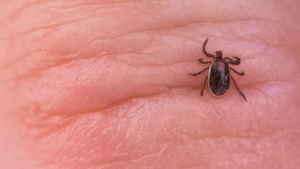Menstrual cramps can significantly disrupt daily life, causing pain and exhaustion. While hot water bottles and over-the-counter painkillers provide temporary relief, herbal teas offer a natural and long-term solution for managing discomfort. For centuries, women have turned to these ancient remedies to ease menstrual cramps.

Here are five herbal teas with a rich history of alleviating menstrual pain:

Red raspberry leaf tea, made from the leaves of raspberry plants, boasts a mild flavor reminiscent of black tea. These leaves contain fragarine, a compound known to strengthen pelvic muscles and reduce uterine spasms. Consuming this tea can significantly reduce menstrual pain.
Preparation: Add 1–2 teaspoons of dried red raspberry leaves to hot water and steep for 10 minutes.

Chamomile tea, a superstar remedy used since ancient Egypt and Rome, provides calming properties and menstrual relief. Its anti-inflammatory and antispasmodic compounds, including apigenin, help relax muscles and reduce cramping. Additionally, chamomile tea can improve sleep and reduce fatigue during menstruation, while its antioxidants help combat inflammation.

Since ancient Greece, peppermint tea has been a go-to remedy for menstrual cramps. It contains menthol, a natural muscle relaxant that soothes uterine contractions and eases cramps. A 2019 study revealed that menthol in peppermint oil effectively smoothens muscle spasms, reducing painful stomach cramps.
Preparation: Steep 1 teaspoon of dried peppermint leaves in hot water for 5–10 minutes.
Furthermore, drinking peppermint tea can improve digestion and alleviate bloating.

Cinnamon tea offers a naturally sweet and spicy flavor that satisfies cravings while easing pain. A staple in ancient Chinese and Ayurvedic medicine, cinnamon possesses anti-inflammatory and circulation-boosting properties. These properties help reduce menstrual pain by improving blood flow and relaxing uterine muscles.
A 2020 study indicated that cinnamon supplementation can reduce inflammation and oxidative stress levels. However, moderation is key to avoid overstimulation.

Ginger tea, a timeless remedy, has been used in Asian and Indian healing practices for its potent anti-inflammatory properties. This spicy root contains gingerol, an active compound that may reduce prostaglandin levels, which trigger menstrual cramps.
A 2015 study found that women who consumed 750-2000 mg of ginger powder during the first 3-4 days of their period experienced reduced period pain.
Disclaimer: This article is for informational purposes only and does not substitute professional medical advice. Consult a healthcare provider before starting any new dietary or herbal remedy, especially if you are pregnant, nursing, taking medications, or have existing health conditions.
Newer articles
Older articles
 Vijay Officially Named TVK's Chief Minister Hopeful for Tamil Nadu's 2026 Election
Vijay Officially Named TVK's Chief Minister Hopeful for Tamil Nadu's 2026 Election
 RJ Mahvash Prioritizes Work Over Buzz, Addresses Link-Up Speculation
RJ Mahvash Prioritizes Work Over Buzz, Addresses Link-Up Speculation
 UNESCO's World Heritage Wonders: Unveiling 10 Iconic Sites, From Petra to the Pyramids
UNESCO's World Heritage Wonders: Unveiling 10 Iconic Sites, From Petra to the Pyramids
 JPG to PDF: A Comprehensive Guide for Graphic Designers & Professionals
JPG to PDF: A Comprehensive Guide for Graphic Designers & Professionals
 iQoo Z9 Turbo: Rumored Specs Emerge – Snapdragon 8s Gen 3, 6000mAh Battery Highlighted
iQoo Z9 Turbo: Rumored Specs Emerge – Snapdragon 8s Gen 3, 6000mAh Battery Highlighted
 Shadman Islam Defends Bangladesh Batters After Day 1 Struggles Against Sri Lanka
Shadman Islam Defends Bangladesh Batters After Day 1 Struggles Against Sri Lanka
 England's Bold Claim: Could They Have Chased Down 450 Against India?
England's Bold Claim: Could They Have Chased Down 450 Against India?
 5 Often-Missed Warning Signs of Bladder Cancer You Need to Know
5 Often-Missed Warning Signs of Bladder Cancer You Need to Know
 KL Rahul Puts Country First, Prioritizes England Tests Over Newborn Child
KL Rahul Puts Country First, Prioritizes England Tests Over Newborn Child
 Tick Bite Paralyzes Fitness Influencer: A Wake-Up Call for Outdoor Enthusiasts
Tick Bite Paralyzes Fitness Influencer: A Wake-Up Call for Outdoor Enthusiasts